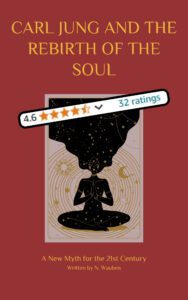In a previous article I have already discussed the importance of the unconscious. Carl Jung argued that our unconscious is a double-edged sword. On the one hand, if it is not integrated, it will have an overwhelming power over the ego and thereby limit our ‘free will’. On the other hand, if we succeed in integrating our unconscious, through the Process of Individuation, then the unconscious can serve as a powerful ‘compensating force’.
Carl Jung argued that every individual can make his or her own choice in accepting the need to become aware of one’s unconscious mind: “If he voluntarily takes the burden of completeness on himself, he need not find it “happening” to him against his will in a negative form.” (Aion, p.70) However, as discussed in my previous article, if an individual does not recognize the importance of the unconscious, this can have some serious negative consequences. According to Carl Jung these negative consequences do no only impact the individual, instead they can have a negative influence on the world in its entirety.
As a result, we can conclude that integrating our unconscious can be a worthwhile effort. Carl Jung called the process of making unconscious forces conscious individuation. How can we integrate our unconscious and succeed in the process of individuation?
In this article I will try to answer these questions. For this discussion I have mainly focused on the two books written by Carl Jung which I believe to be the most important in this regard: The Red Book and Aion. You can find the right versions through these Amazon links: The Red Book & Aion.
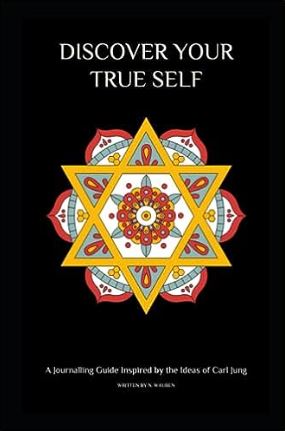
In case you want to learn more about the integration of the unconscious through the individuation process, then you may also be interested in my new book ‘Discover your True Self; A Journalling Guide Inspired by the Ideas of Carl Jung. Throughout this book I explain more about the process and provide relevant journalling excercises.
Table of Contents
The Unconscious and the Soul
Throughout this article I will use the terms ‘the unconscious’ and ‘the soul’ interchangeably. I will not make a distinction between both terms because, according to Carl Jung, becoming aware of one’s unconscious is similar to becoming aware of one’s soul, as well as the other way around.
The German word which Jung used in this regard, Seele, is in English usually translated into the word ‘soul’. It can be argued, however, that the term Seele, encompasses a lot more than merely the soul. It is rather hard to find a correct translation for this word, as a result it is useful to look at the definition that Jung gave of Seele/soul.
For Jung ‘soul’ entailed a lot more than the term suggests at first; besides the unconscious the soul, according to Carl Jung, serves many diverse functions “I, your soul, am your mother, who tenderly and frightfully surrounds you, your nourisher and corrupter; I prepare good things and poison for you […] I am your body, your shadow, your effectiveness in this world, your manifestation in the world of the Gods, your effulgence, your breath, your odor, your magical force.” (The Red Book, p.582) I believe that this definition provided by Carl Jung illustrates that the unconscious is a part of the soul and that most of the activities of our soul occur unconsciously.
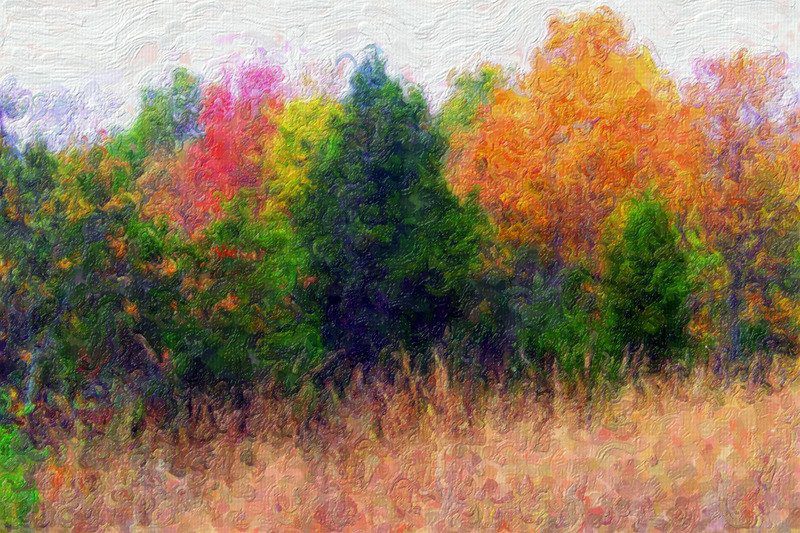
Embrace the Shadow and Chaos
Becoming familiar with our unconscious is not an easy process. As you may have noticed from the definition of the soul given by Jung, not only positive forces reside there; the soul is in part a corruptor, a shadow, and a poisoner. What you might find when you venture into the depths of your unconscious might therefore horrify you, making it hard to move forward. At the same time, many temptations might lure you away from your path, according to Carl Jung: “You dread the depths; it should horrify you, since the way of what is to come leads through it. You must endure the temptation off fear and doubt, and at the same time acknowledge to the bone that what you fear is justified and your doubt is reasonable. How otherwise could it be a true temptation and a true overcoming?” (The Red Book, p.139)
Moreover, besides becoming frightened of what we might find, Carl Jung believed that during this process of familiarizing ourselves with our unconscious, we might believe that we are heading in the wrong direction. This is the case because we will be met with chaos and a lack of meaning. This is, however, normal, according to Carl Jung, because chaos belongs to the world just as much as order does: “How hard is fate! If you take a step toward your soul, you will at first miss the meaning. You will believe that you have sunk into meaninglessness, into eternal disorder. You will be right! Nothing will deliver you from disorder and meaninglessness, since this is the other half of the world.” (The Red Book, p.139)
Fundamentally, according to Carl Jung, we should carefully investigate the aspects of ourselves that we might dislike or that might scare us to some degree. They are just as much a part of us, except they might have been suppressed because we ourselves or our environment might not have liked them. Carl Jung proposed some practical ways in which we could become familiar with these less favourable aspects of ourselves, which he also called the shadow. I will discuss these practical exercises at the end of this article.
Balancing Consciousness and Unconsciousness
Besides allowing disorder and meaninglessness to come into our lives for the purpose of finding out more about our unconscious, Carl Jung further argued that it is of crucial importance that we find the right balance between consciousness and unconsciousness.
If we are too conscious, unconscious characteristics might be neglected. If we are too unconscious, however, we might not have a sufficient footing in the world. The first step to integrating your unconscious, as observed by Carl Jung, is finding out whether you are the master of your unconscious world/the soul, or whether your unconscious world/the soul controls you: “If you believe that you are the master of your soul, then become her servant. If you were her servant, make yourself her master, since she needs to be ruled. These should be your first steps.” (The Red Book, p.140)
I am not a psychiatrist, but I believe that most people are probably too conscious. This can be problematic because, as argued by Carl Jung, unconscious forces might then take control suddenly in a dangerous fashion. We should therefore find the right balance, meaning for most people that we should focus more on our unconscious world: “The world of consciousness must now be levelled down in favour of the reality of the unconscious […] room must be made for the dream at the expense of the world of consciousness.” (Aion, p.25)
In more practical terms this means that we should carefully consider our character traits and see where we might be out of balance. Carl Jung used conscientiousness as an example, individuals that are extremely conscientious might attempt to let go a bit more, thereby consciously losing some control, and as a result giving away some control to one’s unconscious:
“It is not a question, as one might think, of relaxing morality itself but of making a moral effort in a different direction. For instance, a man who is not conscientious enough has to make a moral effort in order to come up to the mark; while for one who is sufficiently rooted in the world through his own efforts it is no small moral achievement to inflict defeat on his virtues by loosening his ties with the world and reducing his adaptive performance.” (Aion, p.25)
The same can be illustrated with the example of two other character traits, thinking ang feeling. Carl Jung observed that some people prefer to think, which can make it difficult for these people to enjoy life: “Some love thinking and establish the art of life on it. They practice their thinking and their circumspection, so they lose their pleasure. Therefore they are old and have a sharp face.” (The Red Book, p.181) Others prefer to feel which might make them too reckless: “The others live pleasure, they practice their feeling and living. Thus they forget thinking. Therefore they are young and blind. Those who think base the world on thought, those who feel, on feeling. You find truth and error in both.” (Ibid) Do you know to which category you belong?
This overemphasize on either thinking or feeling can be problematic and is relevant to our present discussion on the integration of the unconscious because those individuals that think too much, can push their feeling into their unconscious, while those that feel too much, can push their thinking into their unconscious: “He who prefers to think than to feel, leaves his feeling to rot in darkness. It does not grow ripe, but in mouldiness produces sick tendrils that do not reach the light. He who prefers to feel that to think leaves his thinking in darkness, where it spins its nets in gloomy places.” (The Red Book, p.182)
Because either thinking or feeling remains undeveloped, someone who feels does not trust his or her thinking, while someone who thinks does not trust his or her feeling. Although one does therefore not pay any attention to either thinking or feeling, thinking, or feeling still exist within the unconscious. Embracing the aspect that one has neglected is therefore, according to Carl Jung, an important step towards the integration of one’s unconscious: “May the thinking person accept his pleasure, and the feeling person accept his own thought. Such leads one along the way.” (The Red Book, p,183)
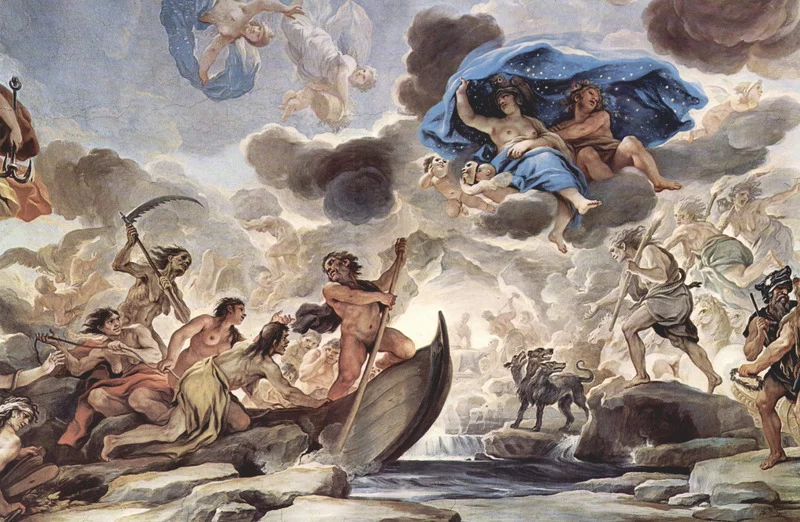
The Importance of Myth, Religions and Mysteries
In a previous article I have discussed the importance of myths and mysteries. Joseph Campbell observed that myths serve an important role as a bridge to the unconscious. Although myths are not true in the usual way in which the term is used, they are true in a different way. They can have an important function as a metaphor, thereby illustrating a much deeper truth, compared to what we are able to comprehend at first.
Carl Jung indicated this importance of myths as well, myths, like religions, and fairy tales for children, can be used to better understand unconscious events. This is the case because they symbolize events that cannot be consciously grasped. We need a symbol or metaphor in order to understand them: “That is why it is so extremely important to tell children fairy-tales and legends, and to inculcate religious ideas (dogmas) into grown-ups, because these things are instrumental symbols with whose help unconscious contents can be canalized consciousness, interpreted, and integrated.” (Aion, p.169)
In our scientific age, in which almost everything is scrutinized by science, symbolic ideas have become largely neglected: “With the loss of symbolic ideas the bridge to the unconscious has broken down. Instinct no longer affords protections against unsound ideas and empty slogans. Rationality without tradition and without basis in instinct is proof against no absurdity.” (Aion, p.248)
This is problematic because we have, as a result of this development, lost an important bridge to the unconscious. In order to integrate our unconscious, it might therefore be worthwhile to become familiar with some of the myths that have been so inspirational to our ancestors. We might learn that we are not that different, and that the ideas which we now believe to be false, might be true after all, albeit in a different way. Reading the works of Carl Jung, as well as Joseph Campbell, can help us familiarize ourselves with these ancient ideas.
Turn your Desire Inward
Another important reason why it is hard to connect with our unconscious, according to Carl Jung, is because we are directing our attention solely to the external world. In order for us to connect with our soul, Carl Jung argued that we should direct our attention inward, to the world of the soul: “The soul has its own peculiar world. Only the self enters there, or the man who has completely become his self, he who is neither in events, nor in men, nor in his thoughts.” (The Red Book, p.142)
If we turn our attention inwards, Jung observed that we might find that the world of our soul is a desert, it is up to us to, by directing our creative energies inwards, fertilize the land of the soul: “If your creative force now turns to the place of the soul, you will see how your soul becomes green and how its field bears wonderful fruit.” (The Red Book, p.142)
Carl Jung believed that it could take a long time for the fertile lands of our soul to become green. Waiting might be too long for some individuals. However, if one then throws him or her self back at the external world, he or she will forever remain a subject to the external world, and the process of individuation has failed: “Since then it will have been clearly proved that this man is incapable of enduring beyond things, men, and thoughts, and they will hence become his master and he will become their fool, since he cannot be without them, not until even his soul has become a fruitful field.” (The Red Book, p.142)
Jung stressed that this does not mean that by directing your creative forces inward, you will be neglecting the external world, instead it means that you will not be dependant upon the external world: “He whose soul is a garden, needs things, men, and thoughts, but he is their friend and not their slave and fool.” (The Red Book, p.142)
Intentions are Limitations
In relation to the discussion on the external and internal world, it is interesting to analyse how we behave in both worlds. Usually, we set intentions for who we want to become or what we want to achieve, in particular in the external world. Carl Jung observed, however, that our intentions might, in fact, limit us: “How little we still commit ourselves to living. We should grow like a tree that likewise does not know its law. We tie ourselves up with intentions, not mindful of the fact that intention is the limitation, yes the exclusion of life.” (The Red Book, p.144)
The same applies to the moment at which we try to familiarize ourselves with our unconscious, we go in with an intention and a certain desired outcome, however, these intentions might limit us in what we might discover: “We believe that we can illuminate the darkness with an intention, and in that way aim past the light. How can we presume to want to know in advance from where the light will come to us.” (The Red Book, p.144)
Instead, Carl Jung suggested us to trust the process and let our unconscious guide us, instead of us guiding ourselves with certain intentions and pre-conceived ideas of what we might find: “I am stunned, but I want to be stunned, since I have sworn to you, my soul, to trust you even if you lead me through madness. How shall I ever walk under your sun if I do not drink the bitter draught of slumber to the lees.” (The Red Book, p.148)
Practical Exercises
Up until now it might be difficult to define what Carl Jung really believed we should do to integrate our unconscious. It has become even clearer how important this process can be for our wellbeing, but what are practical ways in which we can achieved this integration?
First, it is important to note that Carl Jung did not intend to teach us about any particular way in which we should integrate our unconscious. He stressed the importance of this journey, and he shared his own experiences with us, but he never intended to teach us about a particular ‘way’: “It is no teaching and no instruction that I give you. On what basis should I presume to teach you? I give you news of the way of this man, but not of your own way. My path is not your path, therefore I cannot teach you.” (The Red Book, p.125) Each one of us has a certain way or path that he or she can follow, for which we do not need any external teachings or ideas: “The way is within us, but not in Gods, nor in teachings, nor in laws. Within us is the way, the truth, and the life.” (Ibid)
We can, however, use Carl Jung’s ideas to define how can best set up integrating our unconscious. I believe that the most important theme that is present throughout most of Jung’s works, and which is also very much present in his own journey, is that we should turn our creative energies inward. How we do so is largely up to us. Carl Jung practiced this through active imagination and automatic writing, which would be an important source for the material for the The Red Book and The Black Books.
Whether we want to engage this process through active imagination, meditation, or whichever other method one might prefer, it might still be important to pay attention to some of the ideas that I have discussed in this article. It might be important, for example, to not set any intentions, because they might limit us. It can further be important to embrace order and chaos because they are both equally a part of us.
Moreover, it can be of interest to explore the other side of our character traits, because these we might have expelled to our unconscious to a significant degree: if you are extremely conscientious, for example, it might be interesting to arrive late at an event our meeting and observe what happens: “The way of life writhes like the serpent from right to left and from left to right, from thinking to pleasure and from pleasure to thinking. Thus the serpent is and adversary and a symbol of enmity, but also a wise bridge that connects right and left trough longing, much needed by our life.” (The Red Book, p.181)
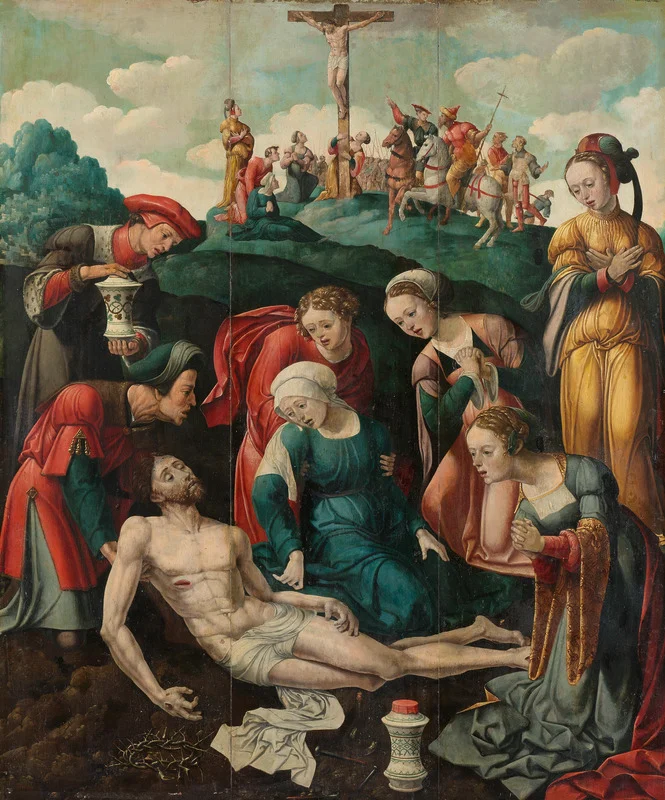
Conclusions
In a previous article I have written about the two dimensions that Carl Jung believed to exist: (1) The spirit of the times and (2) the spirit of the depths. The spirit of the times can be explained as the dimension in which we live. We go to school, we go to work, we follow the law, and we think we know who we are and what we want. The spirit of the time is always changing its form and it is in no way constant. The world changes, we ourselves change, laws come into being and disappear again, wars are fought, values change, and time goes on. In this dimension everything that happens can be explained easily, everything can be rationalized.
The spirit of the depths, on the other hand, is eternal and everlasting, it does not change, it encompasses all that has ever happened and all that will ever happen, it does not attach value, it does not judge or objectify: “From this we learn how the spirit of the depths considers the soul: he sees her as a living and self-existing being, and with this he contradicts the spirit of this time for whom the soul is a thing dependent on man, which lets herself be judged and arranged and whose circumference we can grasp.” (p.129)
The soul and our unconscious belong to the latter dimension. It is up to us to create a bridge between these two dimensions and thereby integrate the unconscious aspects of ourselves that reside in the other dimension. I order to do so, Carl Jung proposed to turn our creative energy inwards. We do not have to do so continuously, we can just continue to live our lives within the spirit of the times, however, whenever we have a moment to ourselves, we might explore the depths and see what we might find: “To live oneself means: to be one’s own task. Never say that it is a pleasure to live oneself. It will be no joy but a long suffering, since you must become your own creator. If you want to create yourself, then you do not begin with the best and the highest, but with the worst and the deepest.” (The Red Book, p.189)
